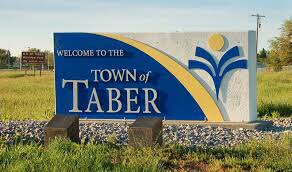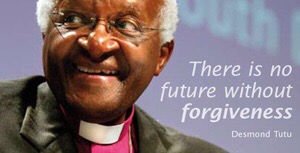This Easter, I participated in a Good Friday service where seven of us preached for four minutes each on one of Jesus’ “seven sayings of the cross.”
My message was on the first saying: “Father, forgive them, for they know not what they do” (Luke 23.34). I post my 4 minutes below.

Jesus turns away, nailed high and bloody on a wooden, Roman cross, away from the crowd assembled below him, their faces flush with hate, mockery, anger, and, looking up to heaven, Jesus prays for them; prays not against them, as he might, seeking justice and rightful vindication, but prays, improbably, for them, at the height of their unrepentance; in the very moment of their unjust crime, Jesus turns and, looking to heaven, asks:
“Father, forgive them, they know not what they do.”
Jesus’ words continue to exercise their improbable power today, even within my own life experience.
***
I was born in Lethbridge, Alberta, the land of coolies and Taber corn.


Perhaps that’s why it impacted me surprisingly personally when, on April 28, 1999, news broke of the fatal shooting at W.R. Myers high school in Taber.
The 14-year-old shooter produced a single fatality: 17-year-old Jason Lang, son of Anglican pastor, Dale Lang.
I responded to the news with the predictable emotional cocktail of horror, shock, pity, anger, fear.
What I was unprepared for, however, was the response from victim’s father, Rev. Dale Lang, who immediately vocalized forgiveness for the attacker.
At the time, I confess, I was unsure how to process Rev. Lang’s quick reaction. Forgiveness, yes, sure. But in time: once justice has had its way!
As a Christian I was, I suppose, hypocritically at the time, prepared unjustly to receive unmerited forgiveness; I was just uncertain the extent to which one ought to extend it.
“Father, forgive me, I know not what I was doing.”
Rev. Lang has gone on to share widely the message of forgiveness, recently empathizing publicly with the community after their tragedy at La Loche.
***
Before the Taber incident, I had been introduced to the forgiveness ministry of South African Bishop Desmond Tutu and his work with the Truth and Reconciliation Commission in the wake of Apartheid.
I’d like to say I knew of Bishop Tutu because I was a justice-seeking, politically savvy teenager. In truth, I heard of him through one of Bono’s rants on U2’s Rattle and Hum album.

Nevertheless, his response to the atrocities committed under Apartheid captivated me.
To move South Africa forward, Bishop Tutu’s Truth and Reconciliation Commission sought not simply to bring Apartheid perpetrators to justice, but to bring perpetrators and victims together under Jesus’ words:
“Father, forgive them, they know not what they do.”
Tutu’s model is used around the world today and, as I consider war-torn Syria or Boko Haram, I wonder whether Jesus’ words might yet exercise their improbable power dramatically again in my lifetime.
***
And what about in my own life?
What about in yours?
How might Jesus’ words change our lives if we apply them to an undeserving
father,
mother,
child,
or grandparent?
a sibling,
spouse,
or someone else in our extended family?
a colleague,
boss,
or subordinate,
(past or present);
a childhood bully, or
a workplace bully?
an acquaintance,
stranger,
friend,
(or former friend)
or an outright enemy?
a pastor,
or someone else at church?
and, turning to heaven, we might ask:
“Father, forgive them, they know not what they do.”

